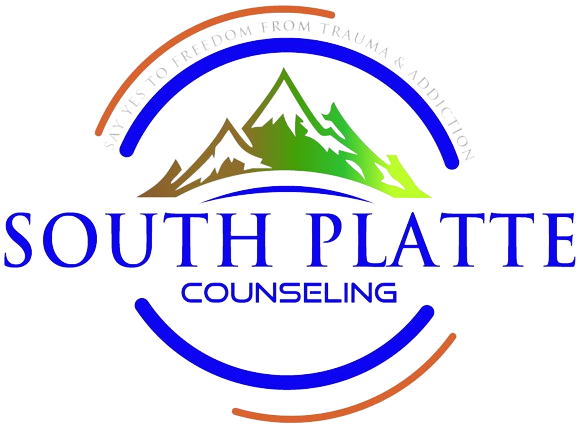Signs of Drinking Problem: When Social Drinking Becomes Addiction
That Friday night, beer after work. Weekend brewery hopping with friends. Holiday cocktails at family gatherings. In Colorado, drinking is woven into our social fabric as tightly as hiking boots and ski passes.
But somewhere between “just one drink” and “just one more,” the line gets blurry. When does social drinking cross into something more concerning?
The truth is, most people don’t wake up one day with a full-blown addiction. It’s a gradual slide that happens so slowly, you might not notice until someone points it out—or until the consequences become impossible to ignore.
The Early Red Flags Most People Miss
You’re Thinking About Drinking More Often
Remember when you used to go days without thinking about alcohol? Now you find yourself planning your day around when you can have that first drink. Maybe you’re checking the clock at 3 PM, calculating how many hours until “wine o’clock.”
This mental preoccupation is one of the earliest signs of drinking problem behavior. Your brain starts treating alcohol like a reward system—something to look forward to, something you deserve after a tough day.
Your Tolerance Has Crept Up
Two beers used to make you feel relaxed and social. Now it takes four or five to feel the same way. You might even feel proud that you can “hold your liquor” better than your friends.
But here’s the thing—tolerance isn’t a superpower. It’s your body adapting to regular alcohol exposure, and it’s often the first biological sign that things are shifting.
You’re Drinking Alone More Often
Sure, a glass of wine while cooking dinner seems harmless. But when that glass becomes two, then three, and you’re doing it every night alone on your couch, it’s worth paying attention.
Social drinking, by definition, happens in social settings. When alcohol becomes your go-to companion for stress, boredom, or just regular Tuesday nights, the social aspect has left the building.
When Others Start Noticing
The Comments Begin
“You drink every time we hang out.” “Maybe you should slow down tonight.” “Are you okay? You seem different lately.”
These comments sting because deep down, you might already suspect something’s changing. Your first instinct might be to get defensive or make jokes about it. But when multiple people in your life start expressing concern, it’s rarely a coincidence.
Work Performance Starts Slipping
Monday morning hangovers become more frequent. You’re calling in sick more often, or showing up but feeling foggy and unmotivated. Deadlines start feeling harder to meet, and your usual sharp thinking feels dulled.
Your colleagues might not know why your performance is inconsistent, but you do.
Relationships Feel Strained
Arguments with your partner happen more often, especially about your drinking. Family dinners become tense when you’ve had “too many” again. Friends stop inviting you to certain events, or you start declining invitations to things where alcohol won’t be available.
The Progression: How Social Drinking Evolves
Stage 1: Weekend Warrior
You drink primarily on weekends and special occasions. Maybe you party a little too hard sometimes, but Monday through Thursday, you’re mostly alcohol-free. This stage can last for years without major problems.
Stage 2: Stress Relief
Work stress leads to weeknight drinks. “I’ve earned this” becomes your motto. One drink turns into two or three, but you still function normally most of the time. You might start keeping alcohol at home “just in case.”
Stage 3: Daily Habit
Drinking becomes part of your routine. You have set times when you drink and feel irritated when those times are disrupted. You might start hiding how much you’re actually consuming from family and friends.
Stage 4: Loss of Control
You drink more than you intended regularly. You’ve tried to cut back but struggled to stick with it. Alcohol starts affecting your work, relationships, and health in noticeable ways.
The Quick Self-Check
Ask yourself these four simple questions (known as the CAGE assessment):
- Have you ever felt you should cut down on your drinking?
- Have people annoyed you by criticizing your drinking?
- Have you ever felt bad or guilty about your drinking?
- Have you ever needed an eye-opener drink in the morning?
If you answered yes to two or more, it may be time to consult a professional.
Colorado’s Unique Drinking Culture
Living in Colorado presents unique challenges when it comes to recognizing drinking problems. Our state’s craft beer scene, après-ski culture, and outdoor adventure lifestyle often revolve around alcohol.
It’s easy to justify drinking when everyone around you is doing it too. “I’m just embracing the Colorado lifestyle,” you tell yourself as you hit your third brewery this weekend.
But when the activities you love become excuses to drink rather than genuine interests, that’s worth examining.
When Legal Consequences Enter the Picture
Sometimes the wake-up call comes in the form of legal trouble. A DUI arrest. Public intoxication charges. Court-mandated substance abuse evaluation.
These moments are scary and embarrassing, but they can also be turning points. Drug and alcohol counselor professionals often see clients who initially come in because they have to, not because they want to.
The good news? Court-ordered evaluations often open the door to recognizing problems that might have otherwise gone unaddressed.
Getting Professional Help
The Assessment Process
A professional substance use evaluation involves more than just asking, “Do you think you have a problem?” Licensed addiction counselor professionals use standardized tools and comprehensive interviews to get a clear picture of your relationship with alcohol.
This isn’t about judgment—it’s about getting accurate information to make informed decisions about your health and future.
What Happens Next
Depending on the results, recommendations might include:
- Outpatient counseling
- Support group participation
- Inpatient treatment programs
- Medical monitoring (especially important during withdrawal, as stopping alcohol suddenly can cause dangerous symptoms like seizures)
- Lifestyle changes and coping strategies
For some individuals with mild drinking concerns, moderation may be achievable. However, for those diagnosed with alcohol use disorder—exceptionally moderate to severe cases—complete abstinence is typically the safest and most successful path. It’s about finding an approach that protects your health and relationships.
Taking the First Step
Recognizing signs of drinking problem behavior in yourself takes courage. Admitting that your relationship with alcohol might need attention doesn’t make you weak—it makes you human.
If you’re reading this article because you’re concerned about your own drinking, trust that instinct. If you’re reading it because you’re worried about someone else, know that expressing your concern with love and without judgment can plant essential seeds.
If you’re dealing with legal consequences from drinking or need a professional substance use evaluation in Colorado, Adam Krolicki provides court-accepted DUI and substance use assessments through Colorado Assessments. Serving the Denver Metro area with both in-person and telehealth options, Adam offers fast, confidential evaluations that meet legal requirements. For ongoing support, addiction counseling services are also available through South Platte Counseling. Call (720) 295-6847 to schedule your evaluation and take the first step toward addressing your concerns.



